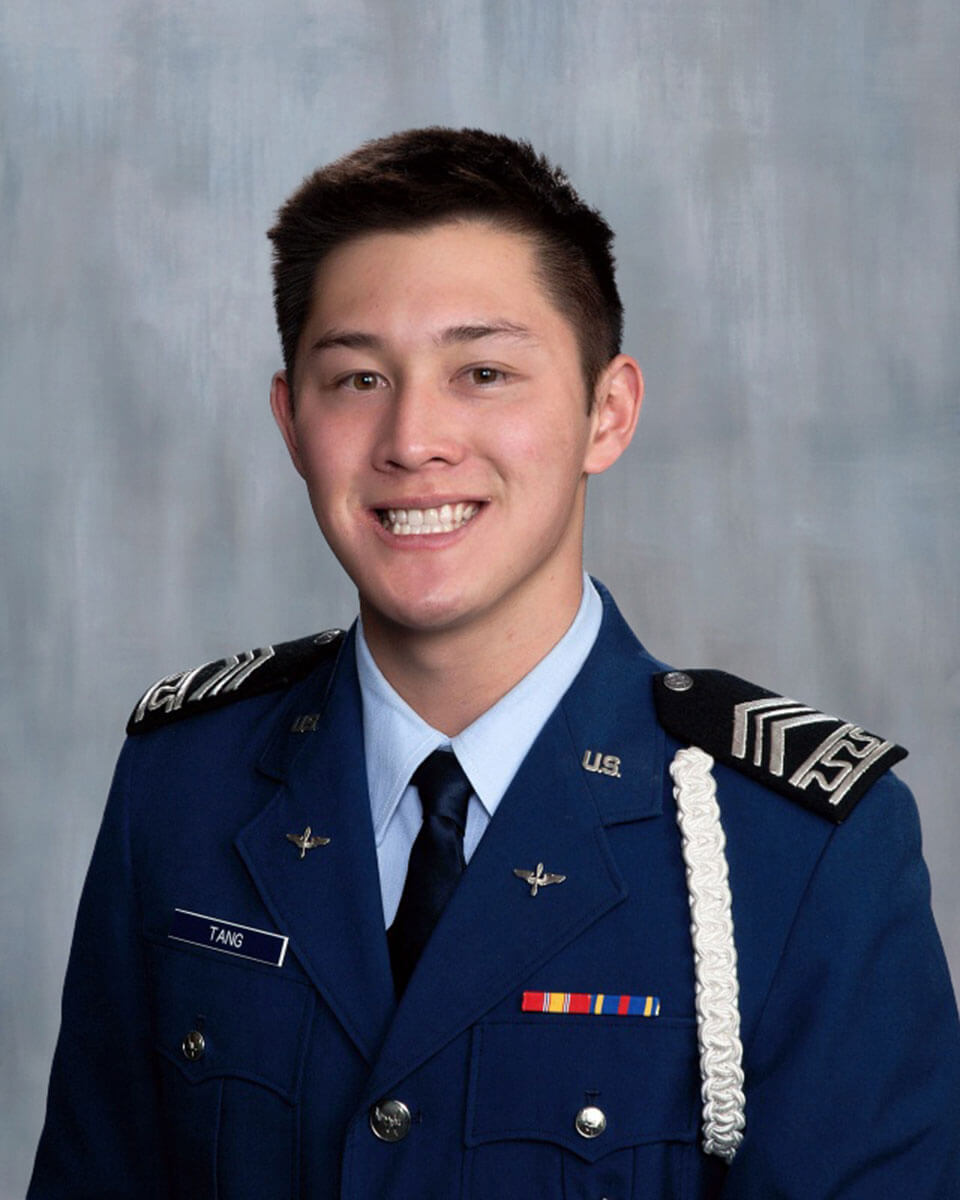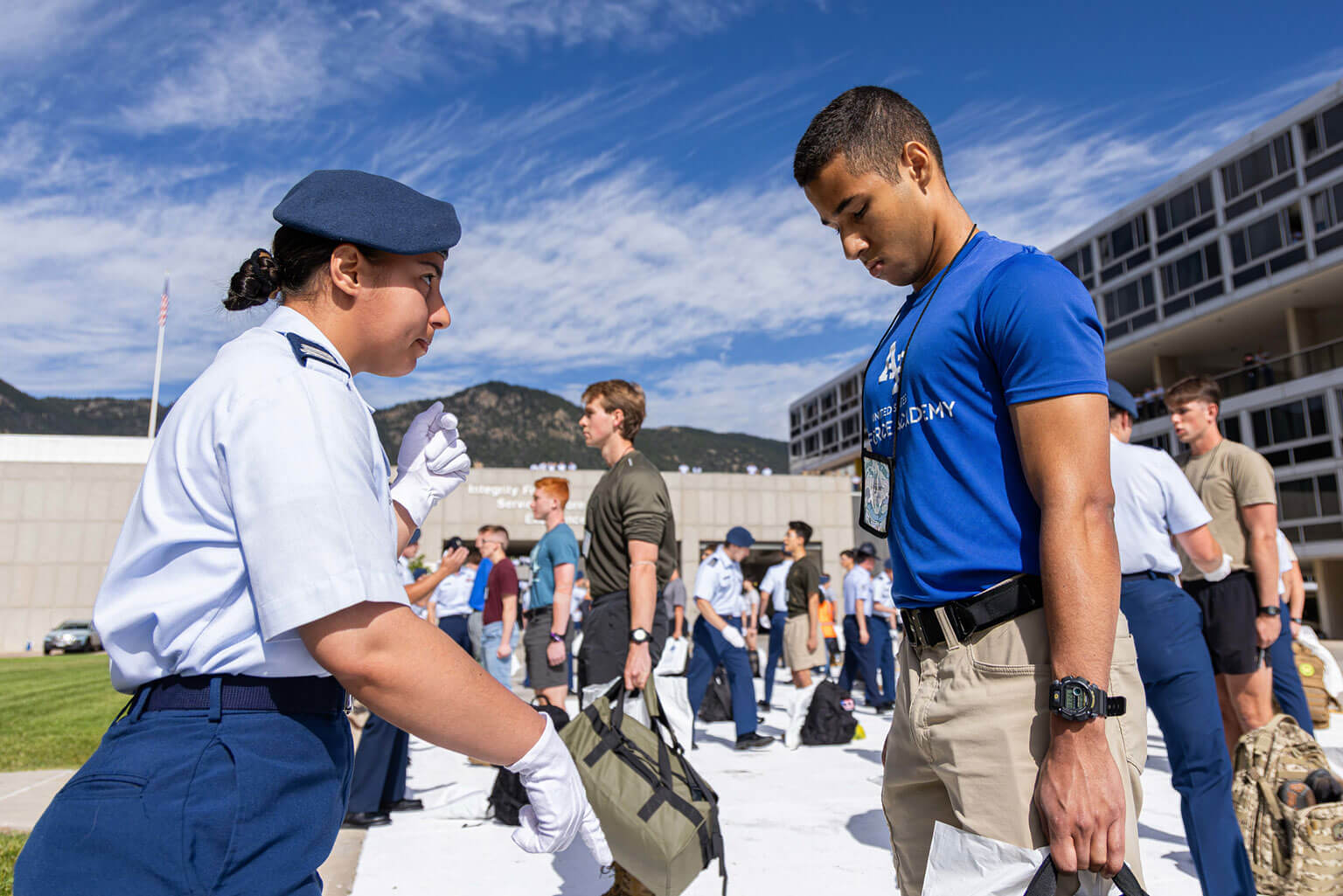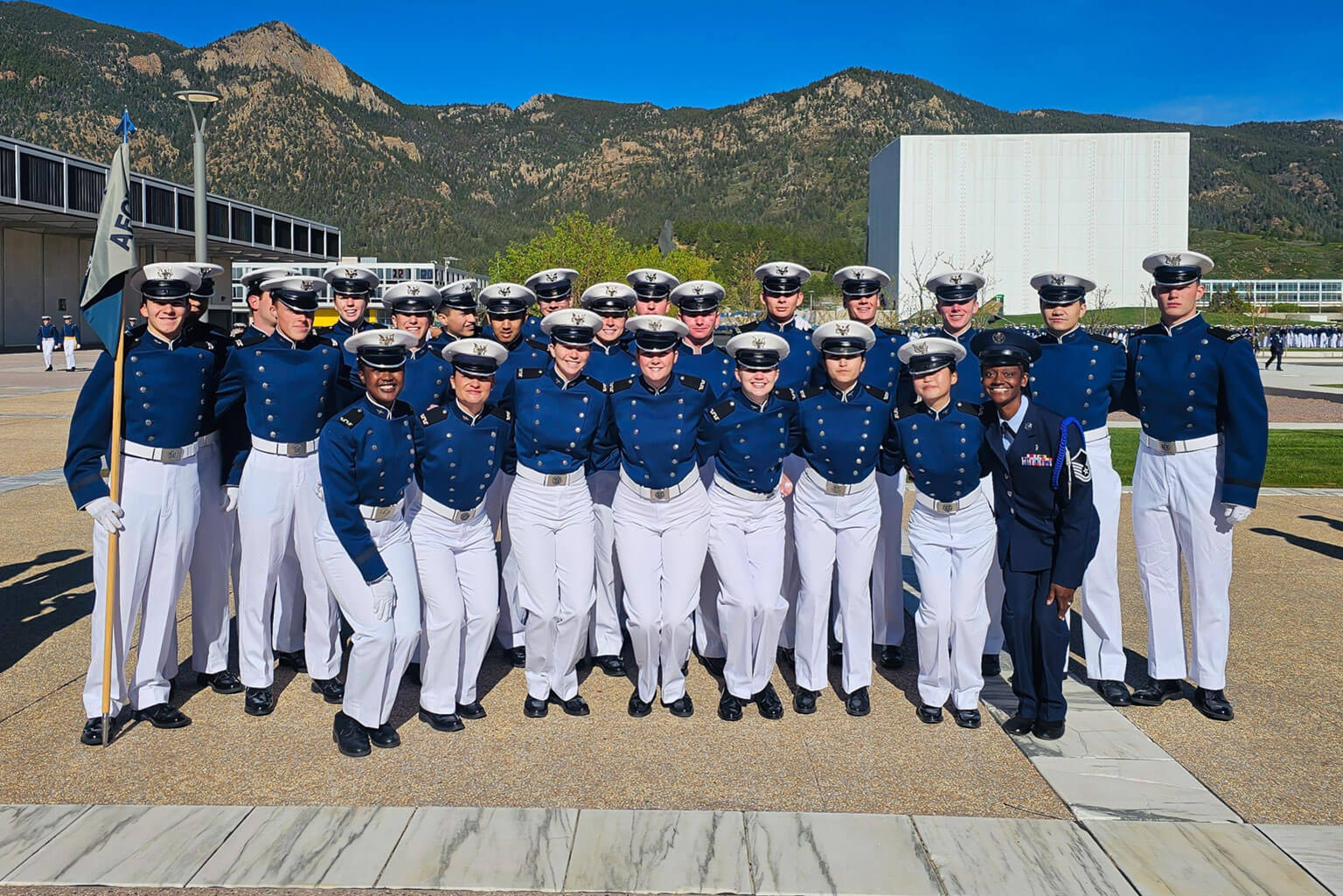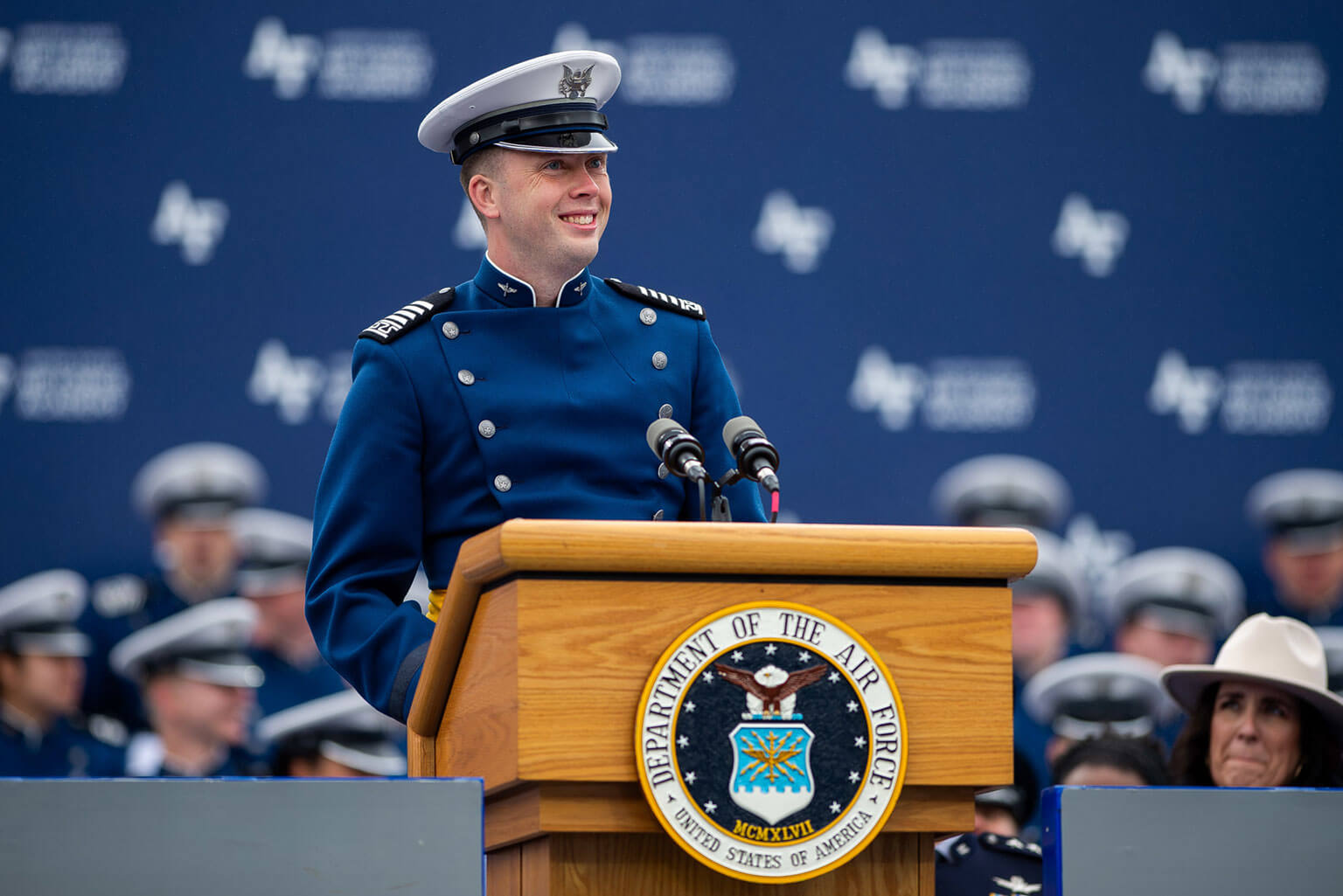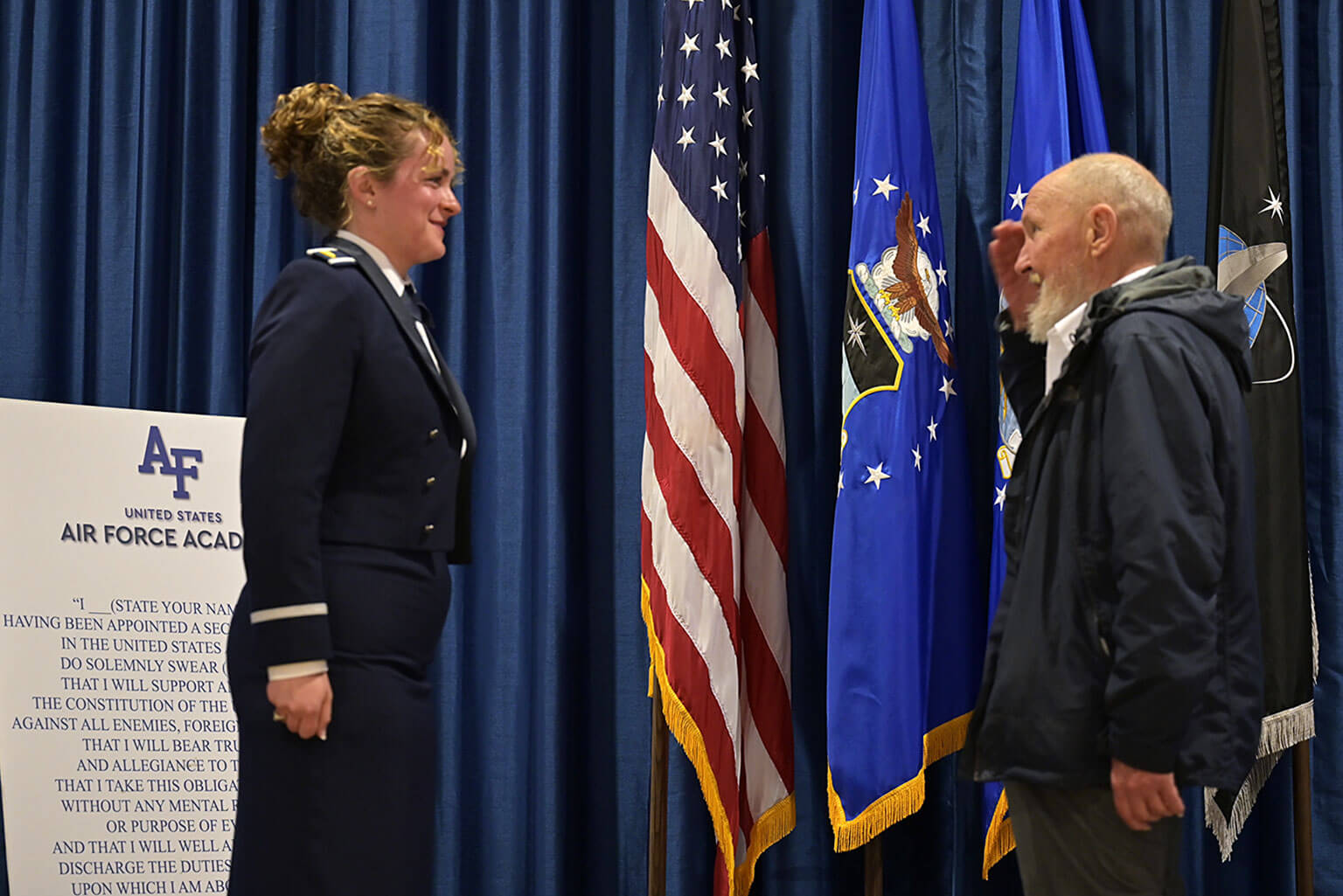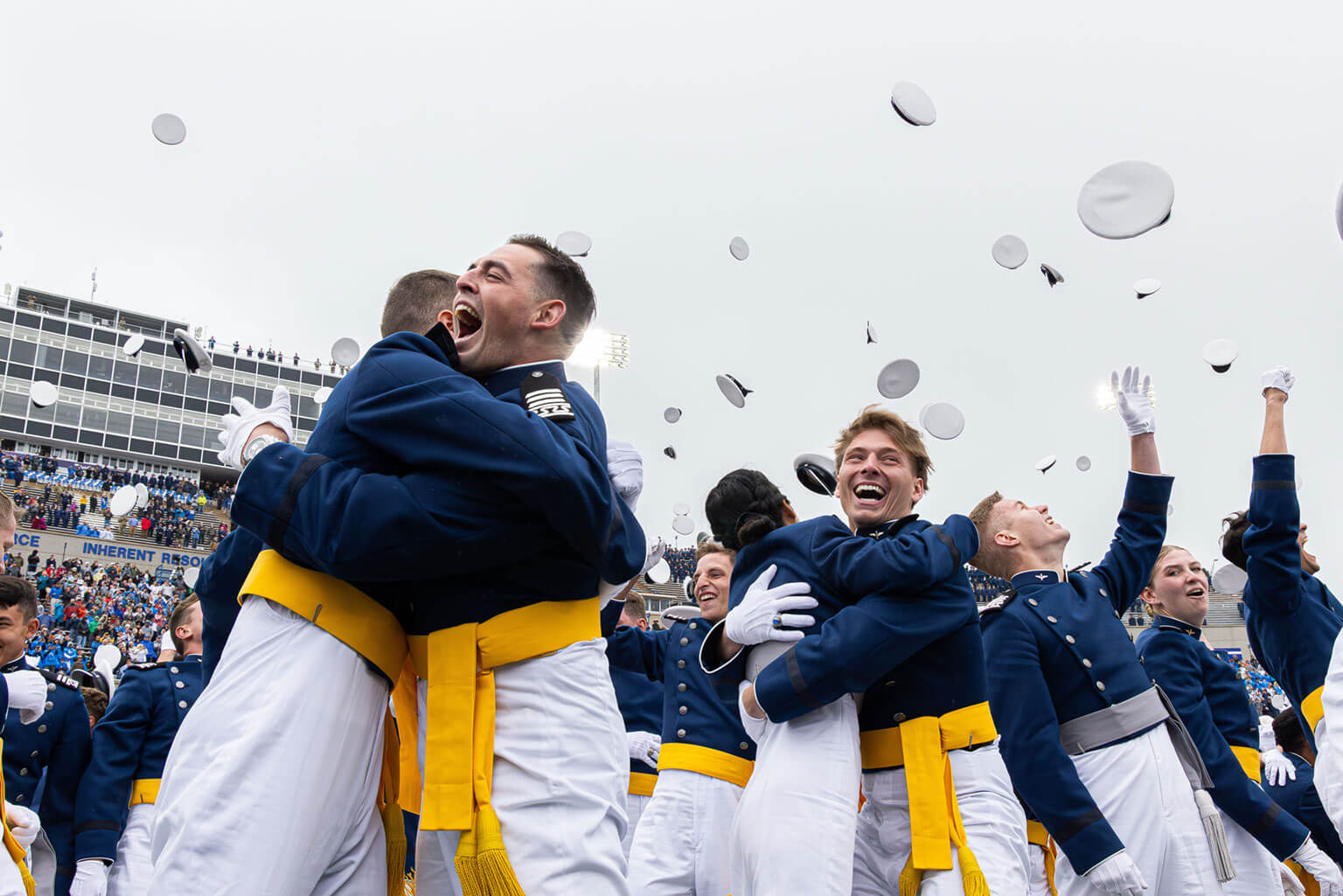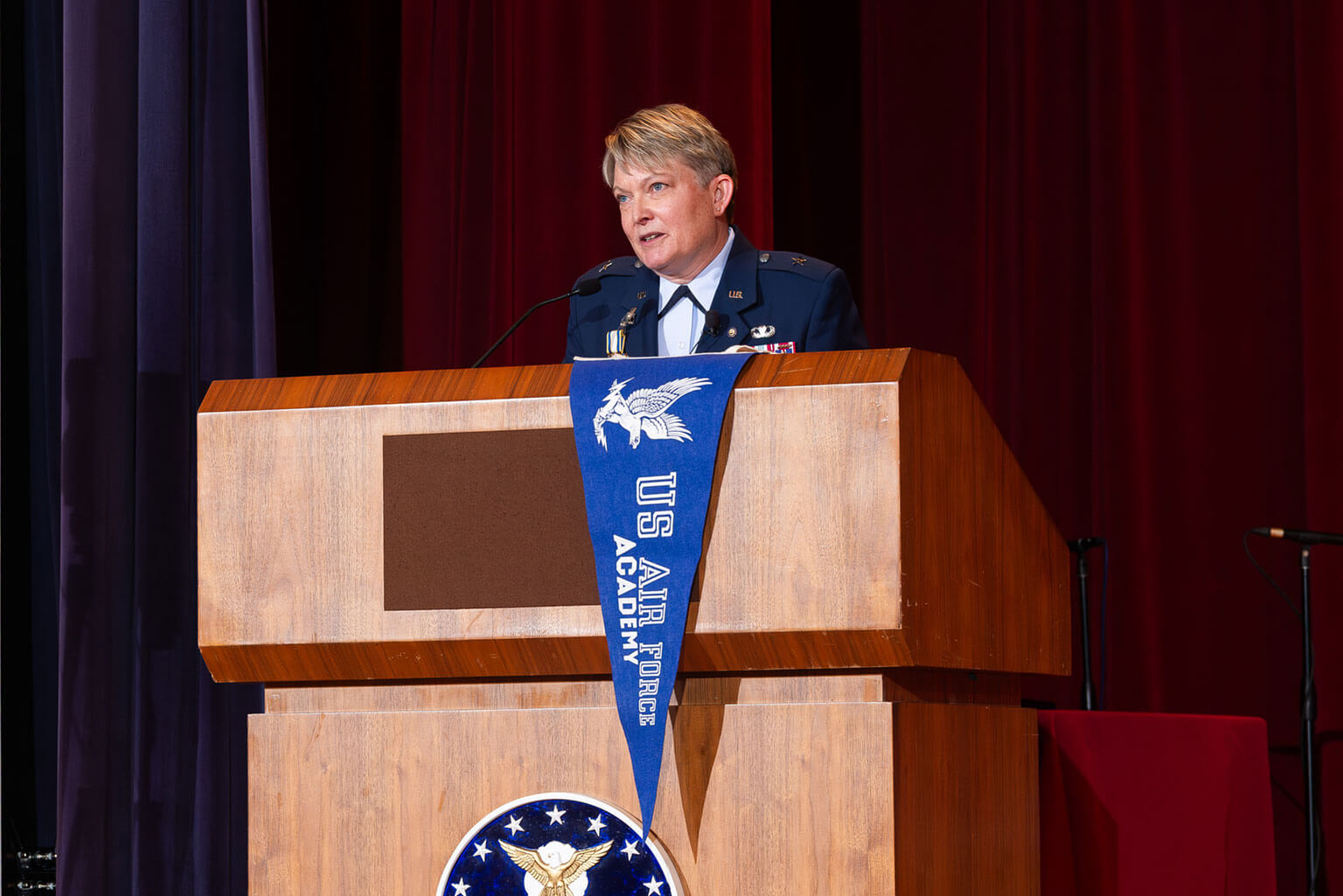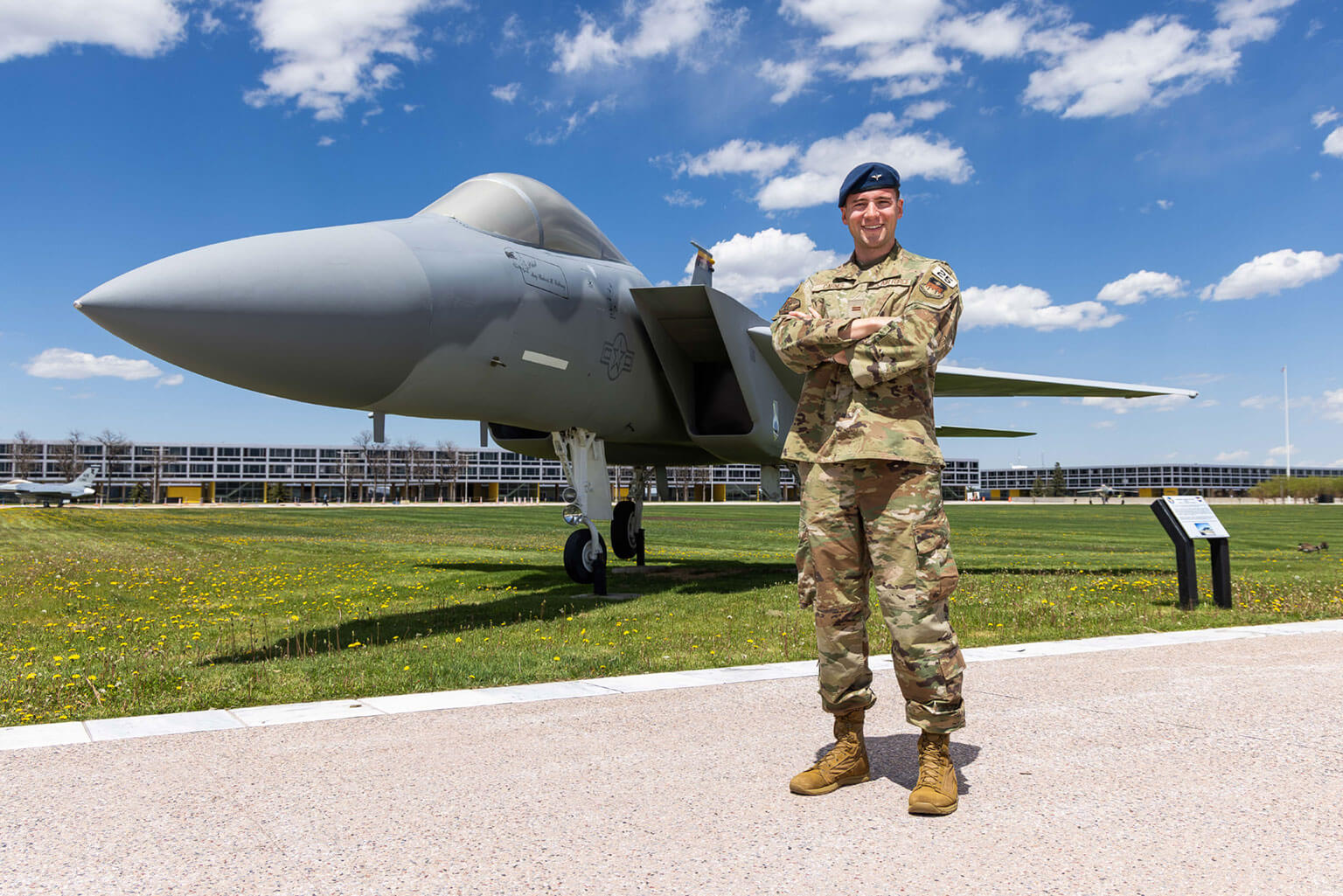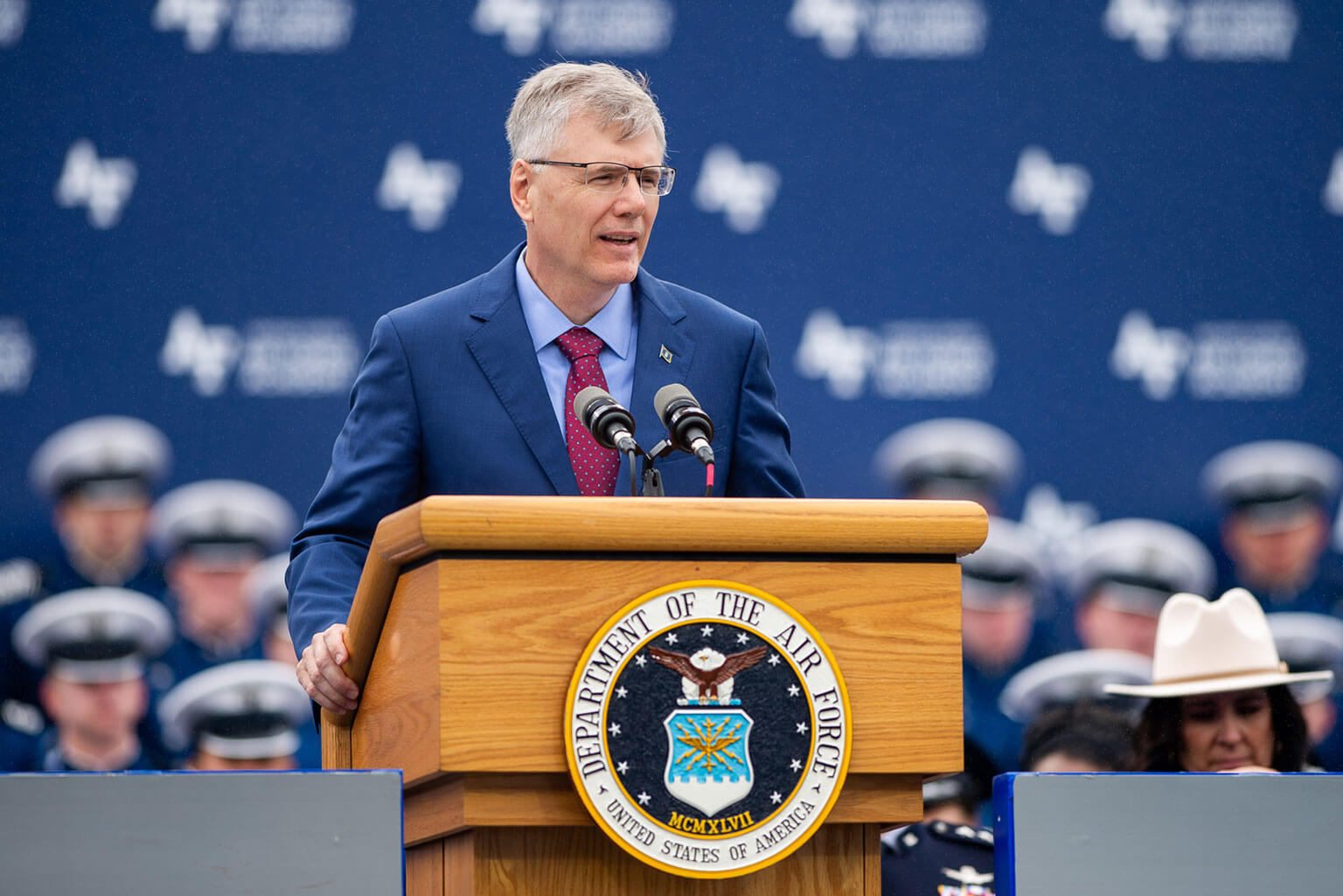Cadet selected as Academy’s 27th Truman Scholar
Cadet 1st Class Mark Tang is the U.S. Air Force Academy’s 27th Truman Scholar. Tang plans to pursue a graduate degree in international security. U.S. Air Force Academy Strategic Communications U.S. AIR FORCE ACADEMY, Colo. – U.S. Air Force Academy Cadet 1st Class Mark Tang, Class of 2026, has been selected to receive the highly competitive Harry S. Truman Scholarship. The senior was named among 54 scholars selected from 743 applicants nominated by 288 colleges, universities and military service academies. The foundation selects Truman Scholars from finalists who demonstrate outstanding leadership potential, a commitment to a career in government or...
Continue Reading Cadet selected as Academy’s 27th Truman Scholar
